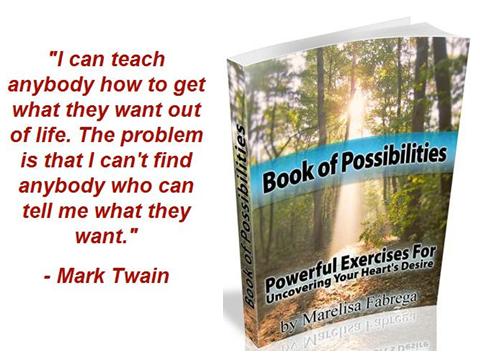 I used to watch a show called NCIS. It’s a television drama about special agents from the Naval Criminal Investigative Services. They investigate crimes committed within the Department of the Navy of the United States. The show focuses on a team of special agents led by Leroy Jethro Gibbs.
I used to watch a show called NCIS. It’s a television drama about special agents from the Naval Criminal Investigative Services. They investigate crimes committed within the Department of the Navy of the United States. The show focuses on a team of special agents led by Leroy Jethro Gibbs.
Gibbs has a set of rules that he lives by. In addition, he considers it to be part of his duty to teach these rules to his team. The rules are guidelines or rules of thumb that Gibbs was taught by mentors, as well as things he’s learned from experience. The purpose of the rules is to help Gibbs, and his team, make good split-second decisions while solving crimes.
Here are some of Gibbs’s rules (he has about 50 of them):
- Rule 1: “Never let suspects stay together.”
- Rule 2: “Always wear gloves at a crime scene.”
- Rule 3: “Don’t believe what you’re told. Double check.”
I was thinking about Gibbs’s rules the other day, and how I could set rules for myself in order to help me achieve my goals. Then, today, I came across an article on money habits, and one of the habits that the author recommended was creating financial rules.
The article referred to these financial rules as “heuristics”. Heuristics is using general knowledge gained by experience. For example, chess players use a heuristic approach. Heuristics work for two main reasons:
- First, because heuristics make decision making easier. Instead of having to make decisions on the spot, you simply apply rules that you’ve set beforehand. In addition, they’re rules that are designed to help you achieve what you want.
- And, second, because psychologists have found that we feel bad about ourselves when we break rules, even rules we’ve set ourselves.
Therefore, for every goal that you have–whether it’s to start getting thirty minutes of exercise a day, to stop smoking, and so on–you should set heuristics for it.
Examples of Rules of Thumb or Heuristics
You can set rules of thumb, or heuristics, for any life area. Below you’ll discover fifteen examples.
Finances
If you’re trying to save money you can set rules such as the following:
- Rule 1: “Never spend more than $75 on a pair of shoes.”
- Rule 2. “Never make the decision to buy something that costs more than $100 without sleeping on it first.”
- Rule 3: “Don’t eat out more than twice a week.”
Fitness and Weight Loss
If you want to lose weight you could set rules such as the following:
- Rule 1: “Never bring junk food into the house.”
- Rule 2: “Never skip breakfast.”
- Rule 3: “If you’re still hungry after a meal, wait twenty minutes before deciding whether to have seconds.”
Productivity
If you’re trying to be more productive, you could set rules such as the following:
- Rule 1: “Never open your email before planning your day.”
- Rule 2. “Write 1,000 words a day, every day, before lunch.”
- Rule 3. “Never watch more than one hour of television a day.”
Becoming an Early Riser
If you’re trying to become an early riser, you could set rules such as the following:
- Rule 1: “Don’t drink caffeine after 1:00 p.m.”
- Rule 2: “Never hit the snooze button.”
- Rule 3. “Turn off the computer at 11:00 p.m.”
Life in General
And here are some general life rules you could consider applying:
- Rule 1: “If you feel pressured to make a decision, say ‘no’”.
- Rule 2. “If you don’t want something to turn into a habit, don’t do it three times in a row.”
- Rule 3. “If someone says something that upsets you, take a deep breath and count to three before you respond.”
Action Plan
In order to start applying rules of thumb that will help you to achieve your goals, do the following:
- Get a piece of paper and a pen and write down an important goal that you have at the top of the sheet of paper.
- Create at least three rules that you think will help you to achieve your goal and write them down. Don’t come up with too many rules or you’ll get overwhelmed and probably end up breaking all of them.
- Start applying your new rules in order to make decisions that will help you to achieve what you want.
- Look at your rules on a regular basis to make sure that they stay fresh in your mind.
It may be difficult for you to follow your rules at first, but if you stick to it soon you’ll be following your rules without having to give them a second thought. And that will help you to achieve your goals.
Conclusion
Just as Gibbs uses rules of thumb to solve crimes, use heuristics to achieve your goals and live your best life. What are some rules of thumb that have helped you to achieve your goals? What are some of the heuristics that you’re going to apply going forward?



Related Posts:
- What’s Your Normandy?
- What a 16th Century Priest Can Teach You About Self-Improvement
- 14 Ways to Be More Resilient So That You Can Bounce Back From Adversity
- What a Masked Vigilante Can Teach You About Goal Achievement – The Zorro Circle
- Get What You Want by Cultivating a Really Useful Attitude
Did you enjoy this article? Subscribe to “Daring to Live Fully” by RSS or by email, and get free updates.








 Marelisa Fabrega is a lawyer and entrepreneur. She holds a Bachelor of Science in Business Administration from Georgetown University in Washington, D.C., as well as a Juris Doctor from the Georgetown University Law Center. You can learn more about her
Marelisa Fabrega is a lawyer and entrepreneur. She holds a Bachelor of Science in Business Administration from Georgetown University in Washington, D.C., as well as a Juris Doctor from the Georgetown University Law Center. You can learn more about her 






Comments on this entry are closed.
I have this rule: Always have an exit strategy and give yourself time to execute it. Whenever I make decisions, I think of at least 3 “what if” situations and have a back up plan to cover them.
This came about because one day we had all of our furniture packed for a big move; it was about 10:00 am and the movers didn’t show. I called them and they said our name wasn’t on the books, even though I had proof.
We were able to move, finally, because it was early enough in the day to get another mover.
If you have a major thing planned, do it in the morning so you can address any subsequent issues that occur.
Likewise, I never wash clothes late in the evening. If I do them earlier and, for instance, the machine breaks down which would cause a water leak to the unit below us, it’s easier to work on the problem in the daytime(when one can see) and get emergency service or a machine to clean up the water. This rule came because: In the past, I had a flood from the bathtub in the late evening. It was hard to see where the water flowed and almost impossible to find a vacuum and dryers.
In sum my 2 rules which have saved me many headaches: Plan major tasks earlier in the day so you have time to address any emergency that occurs using an exit strategy or plan.
Good post. I’m going to work on some others. I can see where the idea of passive income (you’ve discussed before) fits in with this heuristic model.
Thanks again for an excellent post and idea.
I love your rules, Sandy. You made me think of a “rule” set forth by the Heath brothers in their book on making decisions: “Always think of the worse case scenario and have a plan in place or some sort of “insurance” in case things don’t go as you want them to.”
Thanks Marelisa for commenting; I’ll look for books by the Heath brothers. 😉